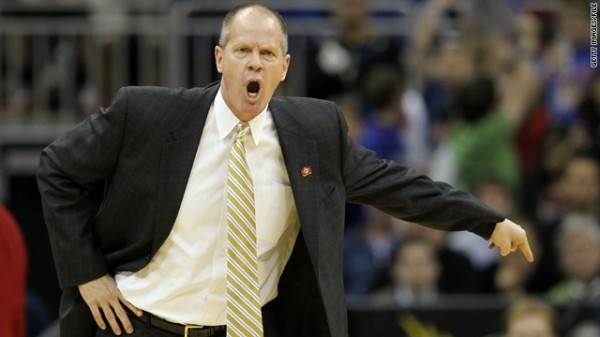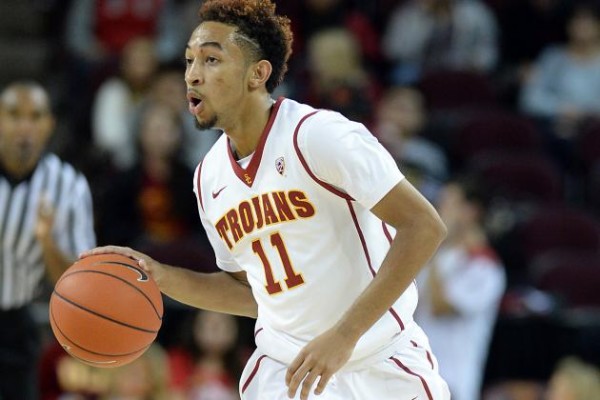Pac-12 Bubble Watch and Semifinals Preview
Posted by Andrew Murawa (@Amurawa) on March 11th, 2016Eight games are in the books at the Pac-12 Tournament and the higher seeds have advanced in each one, setting up a terrific set of semifinals tonight. Before we preview those games, let’s break down postseason expectations for the four teams that were eliminated from the Pac-12 Tournament on Thursday.
Colorado
The Buffaloes are going dancing. Their RPI is a sparkling #30 and they own home wins over Oregon, California, Arizona and Oregon State. In a year such as this one, that should be enough to put them safely above the cut line. With very little else on their resume, though, don’t expect a great seed for the Buffs. Somewhere in the #8-#10 range sounds about right, which means Colorado’s stay in the NCAA Tournament is unlikely to extend beyond next weekend.
Oregon State
Coming into the weekend, the popular wisdom put Oregon State squarely on the bubble with USC appearing safe. Upon closer review, however, the Beavers may have the superior resume. They have the higher RPI, three wins over top 25 RPI teams (Oregon, California, Utah) and three more victories over teams in the RPI #26-#50 range (Tulsa, Colorado, USC). With no bad losses, that’s a terrific resume, even if all of those quality wins came at home. An argument could even be made that Oregon State’s resume is every bit as good as that of Colorado. This team should definitely be dancing for the first time since 1990.
USC
Just because Oregon State has a better resume than the Trojans doesn’t mean USC is NIT-bound. USC has one RPI top 25 win (Arizona) and four wins over teams rated #26-#50 (Wichita State on a neutral court; home wins against Yale, Colorado and Oregon State). Again, nothing approaching a bad loss on this resume. That should be plenty enough to leave Andy Enfield a happy man on Sunday night, although the Trojans could be last in the line of Pac-12 teams with NCAA Tournament-quality resumes.
Washington
No such luck for the Huskies, with an RPI of #79, a neutral win versus Texas, home wins over Colorado and USC and a few road wins against teams in the bottom half of the Pac-12. It was a great season and Lorenzo Romar coaxed his very young team into competing every night out, but the new best-case scenario for Washington is a lengthy run in the NIT. An invitation to that tournament (which is rapidly filling up with regular season champions of other leagues) is also no sure thing.
Semifinal Preview
Oregon vs. Arizona
The Ducks already have a win over the Wildcats at the McKale Center, so taking on the ‘Cats in McKale Center North (the MGM Grand Garden Arena, of course) should in no way rattle them. Back in that January meeting, Oregon earned a win on the strength of 19 Arizona turnovers (on just 67 possessions) while committing just six of their own. The other way Oregon bothered Arizona in that first meeting was the same way it has with just about every team this season: efficient and varied offense. Oregon scored 1.25 points per possession, the second-most PPP the Wildcats have given up in a game this year. Dillon Brooks led the way with 24 points, but five Ducks scored in double figures and seven of their eight players had at least a 50 percent eFG in the game. But this Arizona team has grown since that defeat. The Wildcats have held their opponent under 1.0 PPP in seven of the 11 games since, as players like Allonzo Trier and Kadeem Allen have developed into plus defenders on the perimeter. Sean Miller should have an easy time preaching ball control after his team turned it over 15 times in its quarterfinal win over Colorado yesterday, but is his defense improved enough to stop the conference’s best offense? It should be a great game.
Utah vs. California
The Utes and Golden Bears have split their two matchups this season, but Friday night’s meeting will come down to how Cal can slow the Pac-12 POY, center Jakob Poeltl. In the two previous matchups, Poeltl averaged 20.0 points, 9.5 boards and got to the line 11.5 times per game. It’s no surprise that Bears center Kameron Rooks collected eight fouls in those two games. Freshman big man Ivan Rabb is going to have to contribute to slowing Poeltl, but the Bears’ best chance at doing so may be attacking the paint offensively with players like Rabb, Jaylen Brown and Tyrone Wallace in an effort to get Poeltl into foul trouble. If history is any indication, expect the pace to be slow (the two teams averaged just 64.5 possessions in their two games this season) and the game to be physical, with Utah’s superior foul shooting and defense without fouling the difference-makers.












































